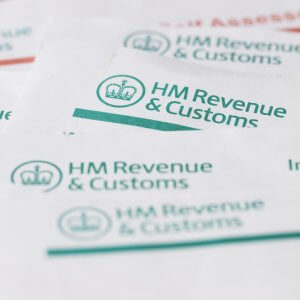- Employment law for employees
- Employment law for employers
- Tax disputes & investigations

Longer Reads
IR35 – Full Circle…for now…
As part of Jeremy Hunt’s reversal of many aspects of the mini-Budget, it was announced that the planned IR35 changes are to be scrapped. We take a look at what this means and what the future holds for IR35.
2 minute read
Published 18 October 2022
Key information
As part of the “mini-budget” set out by then Chancellor Kwasi Kwarteng last month, changes to the IR35 tax rules which were introduced to the public sector in 2017 and to the private sector in 2021 were due to be reversed.
Whilst the proposed reversal of the IR35 rules was welcomed by many businesses and contractors, it was announced yesterday that this would be scrapped as part of current Chancellor, Jeremy Hunt’s, attack on the mini budget.
So where does that leave IR35 and what should businesses do now?
What is IR35
Essentially, IR35 is a tax regime that is designed to prevent perceived tax avoidance by self-employed contractors who provide their services through an intermediary – usually a personal service company.
To determine whether IR35 applies, it is necessary to look at the nature of the working relationship between the individual contractor and the end client. If HMRC determine that the working relationship is effectively an employment rather than a consultancy relationship, then it will fall within the scope of IR35.
If IR35 is deemed to apply, a hypothetical contract is created between the individual contractor and the end client, effectively by-passing the personal service company, and the result is that the contractor should be taxed as if they are an employee.
Current Position
Prior to the reforms in 2017 and 2021, the obligation was on the individual contractor to determine whether the nature of their working relationship with a client was in fact an employment relationship for tax purposes or whether it was a genuine consultancy relationship. Unsurprisingly, most contractors found that they were not employees for tax purposes and that accordingly they should not be taxed as such.
HMRC were of the view that there was widespread non-compliance with the self-assessment of IR35 status by individual contractors and that large numbers of contractors who should fall within the scope of IR35 were not paying the correct tax. Reforms were therefore introduced to shift the responsibility of determining whether or not IR35 applied from the individual contractor to the end client. In 2017, the government made public authorities responsible for identifying whether IR35 applied, and later in 2021 (following a slight COVID-related delay) this responsibility extended to medium and large private businesses.
Therefore, the current position on IR35 is that it is the responsibility of the ‘end client’ (any public authority or medium or large sized business) to determine whether IR35 applies. Generally, the end client will also be responsible for any employment tax liability which arises from the relationship.
Why was there a proposed reversal?
The current responsibility on end clients to determine whether IR35 applies puts a huge administrative burden on businesses to review and monitor all contractor relationships and to make a determination as to whether or not each falls within the scope of IR35. Critics of the regime argue that the current IR35 rules are unnecessarily complicated and time-consuming to apply, with widespread criticism of the government’s Check Employment Status for Tax (‘CEST’) tool.
Earlier this year, during the leadership contest between Liz Truss and Rishi Sunak, Liz Truss made a pledge to review the IR35 rules. However it came as quite a surprise when Kwasi Kwarteng announced on 23 September 2022 that the current rules would be reversed altogether (taking us back to the pre-2017 and pre-2021 position) without conducting any review at all.
With the pace of change in government, our advice to businesses at the time was to wait and see what might happen before ripping up any IR35 policies and procedures that had been created, and following yesterday’s news, it looks like those policies and procedures might still be needed for the foreseeable future after all.
Where are we now and what is next for IR35?
As it stands, it remains the responsibility of end clients to determine whether or not IR35 applies to each contractor relationship. In the private sector, this has been the case for medium and large businesses since last April and businesses who regularly use the services of contractors should have implemented processes and carried out training for relevant staff members to ensure compliance.
As to what happens in the future, that remains to be seen! As we’ve seen over the past few weeks and months, much will depend on political pressures on party leaders.
If you require any advice or assistance with IR35, please contact our Employment Team at Collyer Bristow.
Related content
Longer Reads
IR35 – Full Circle…for now…
As part of Jeremy Hunt’s reversal of many aspects of the mini-Budget, it was announced that the planned IR35 changes are to be scrapped. We take a look at what this means and what the future holds for IR35.
Published 18 October 2022
Associated sectors / services
Authors
As part of the “mini-budget” set out by then Chancellor Kwasi Kwarteng last month, changes to the IR35 tax rules which were introduced to the public sector in 2017 and to the private sector in 2021 were due to be reversed.
Whilst the proposed reversal of the IR35 rules was welcomed by many businesses and contractors, it was announced yesterday that this would be scrapped as part of current Chancellor, Jeremy Hunt’s, attack on the mini budget.
So where does that leave IR35 and what should businesses do now?
What is IR35
Essentially, IR35 is a tax regime that is designed to prevent perceived tax avoidance by self-employed contractors who provide their services through an intermediary – usually a personal service company.
To determine whether IR35 applies, it is necessary to look at the nature of the working relationship between the individual contractor and the end client. If HMRC determine that the working relationship is effectively an employment rather than a consultancy relationship, then it will fall within the scope of IR35.
If IR35 is deemed to apply, a hypothetical contract is created between the individual contractor and the end client, effectively by-passing the personal service company, and the result is that the contractor should be taxed as if they are an employee.
Current Position
Prior to the reforms in 2017 and 2021, the obligation was on the individual contractor to determine whether the nature of their working relationship with a client was in fact an employment relationship for tax purposes or whether it was a genuine consultancy relationship. Unsurprisingly, most contractors found that they were not employees for tax purposes and that accordingly they should not be taxed as such.
HMRC were of the view that there was widespread non-compliance with the self-assessment of IR35 status by individual contractors and that large numbers of contractors who should fall within the scope of IR35 were not paying the correct tax. Reforms were therefore introduced to shift the responsibility of determining whether or not IR35 applied from the individual contractor to the end client. In 2017, the government made public authorities responsible for identifying whether IR35 applied, and later in 2021 (following a slight COVID-related delay) this responsibility extended to medium and large private businesses.
Therefore, the current position on IR35 is that it is the responsibility of the ‘end client’ (any public authority or medium or large sized business) to determine whether IR35 applies. Generally, the end client will also be responsible for any employment tax liability which arises from the relationship.
Why was there a proposed reversal?
The current responsibility on end clients to determine whether IR35 applies puts a huge administrative burden on businesses to review and monitor all contractor relationships and to make a determination as to whether or not each falls within the scope of IR35. Critics of the regime argue that the current IR35 rules are unnecessarily complicated and time-consuming to apply, with widespread criticism of the government’s Check Employment Status for Tax (‘CEST’) tool.
Earlier this year, during the leadership contest between Liz Truss and Rishi Sunak, Liz Truss made a pledge to review the IR35 rules. However it came as quite a surprise when Kwasi Kwarteng announced on 23 September 2022 that the current rules would be reversed altogether (taking us back to the pre-2017 and pre-2021 position) without conducting any review at all.
With the pace of change in government, our advice to businesses at the time was to wait and see what might happen before ripping up any IR35 policies and procedures that had been created, and following yesterday’s news, it looks like those policies and procedures might still be needed for the foreseeable future after all.
Where are we now and what is next for IR35?
As it stands, it remains the responsibility of end clients to determine whether or not IR35 applies to each contractor relationship. In the private sector, this has been the case for medium and large businesses since last April and businesses who regularly use the services of contractors should have implemented processes and carried out training for relevant staff members to ensure compliance.
As to what happens in the future, that remains to be seen! As we’ve seen over the past few weeks and months, much will depend on political pressures on party leaders.
If you require any advice or assistance with IR35, please contact our Employment Team at Collyer Bristow.
Associated sectors / services
- Employment law for employees
- Employment law for employers
- Tax disputes & investigations
Authors
Need some more information? Make an enquiry below.
Subscribe
Please add your details and your areas of interest below
Article contributor
Sinead
KellySenior Associate
Specialising in Employment law for employees, Employment law for employers and Manufacturing
Enjoy reading our articles? why not subscribe to notifications so you’ll never miss one?
Subscribe to our articlesMessage us on WhatsApp (calling not available)
Please note that Collyer Bristow provides this service during office hours for general information and enquiries only and that no legal or other professional advice will be provided over the WhatsApp platform. Please also note that if you choose to use this platform your personal data is likely to be processed outside the UK and EEA, including in the US. Appropriate legal or other professional opinion should be taken before taking or omitting to take any action in respect of any specific problem. Collyer Bristow LLP accepts no liability for any loss or damage which may arise from reliance on information provided. All information will be deleted immediately upon completion of a conversation.
Close




















































































